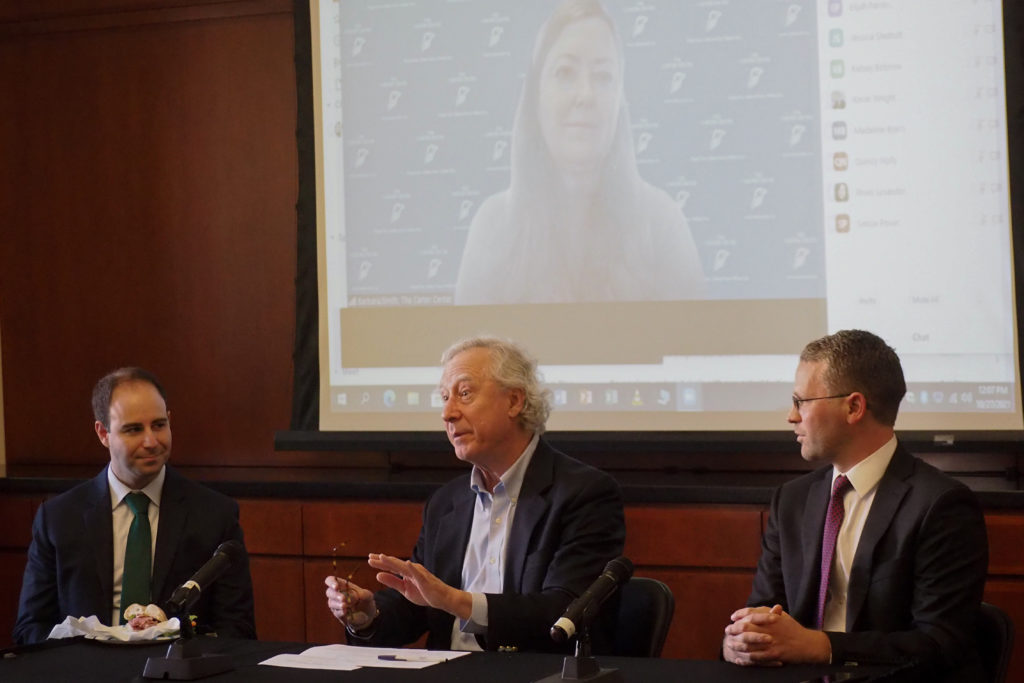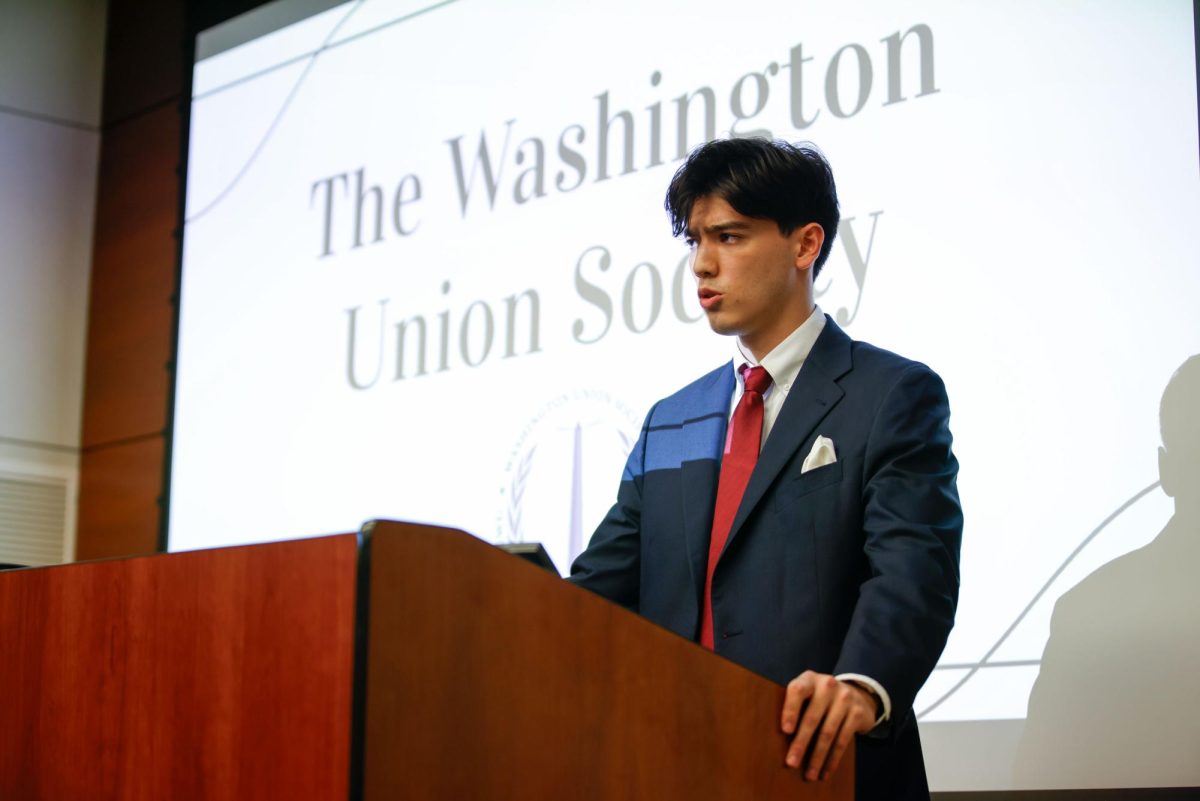A panel of national security experts discussed how the U.S. intelligence community has undergone institutional and ethical changes that have reshaped information collection since the Sept. 11 attacks as part of a panel at Lisner Hall last week.
The experts spoke about the country’s internal challenges to improve the culture of the intelligence community and the role of lawyers in the field. GW Law’s National Security Law Association hosted the event with more than 30 attendees, and Eric Snyderman, a doctoral law student, moderated the panel.
James Petrila, an adjunct law professor and a retired Central Intelligence Agency attorney, said the fixation on counterterrorism after 9/11 sparked a culture within the CIA to disseminate intelligence regardless of accuracy. He said the low standards for dissemination enabled political appointees like government officials to pressure analysts to produce intelligence to justify military involvement in the Middle East.
He said analysts would proceed to disseminate unreliable information from fabricators – sources who deliberately produce fraudulent and forged intelligence. The U.S. government used disinformation about Iraq’s possession of weapons of mass destruction from the Iraqi fabricator “Curveball” to justify the Iraq War, he added.
“It didn’t matter how much the collectors believed that the information came from a fabricator, it was going to get disseminated,” he said. “The level of fear was so great, no idea was too crazy.”
Petrila said since 9/11, the landscape of security threats has shifted away from Islamic terrorism and more toward the domestic front. He said handling right-wing domestic terrorism can raise constitutional controversies when investigating U.S. citizens protected by the First and Fourth Amendments.
“When you look at the FBI, just the constitutional structure that we have presents all kinds of issues,” he said. “If we aren’t careful within the intelligence community about making sure that the collection is consistent with law – with our authorities – that makes your job impossible because discovery becomes a mess.”
Barbara Smith – the vice president of peace programs at the Carter Center, a human rights center founded by former President Jimmy Carter – said the intelligence community should use failure tests, workshops to determine missteps and room for improvement, to review its errors. She said the U.S. Agency for International Development follows this process to evaluate mistakes made while administering foreign aid, and the National Security Council and the State Department still ineffectively use after-action reviews — analyses of the results and failures of operations.
“We did reviews, but they probably didn’t look back or really take on those lessons learned and try to address those,” she said.
Smith said the absence of security clearance access to classified intelligence about conditions in foreign countries hinders Cabinet departments and non-intelligence agencies, like USAID and the State Department. She said differing objectives, like protecting human rights and analyzing information within humanitarian and intelligence agencies, can lead to friction between the two communities.
“Not having that kind of access to critical information and analysis could really hamstring your ability to have a full picture as you’re planning out what you want to do programmatically,” she said.
Petrila said without better communication, the government could struggle to address larger national security threats, including climate change, that intelligence agencies cannot handle on their own because of the disconnect between intelligence and non-intelligence agencies.
“The collection that comes from other parts of the government, including USAID, is extraordinarily critical to inform a whole of government approach,” he said. “If the intelligence community turns that down because it’s open source, then we’re not doing the service that we need to do.”
Joshua Champagne, a Department of Justice trial attorney, said while policymakers and intelligence operators often view lawyers as obstacles to their work, lawyers exist to inform policymakers and operators about regulations instead of creating them.
“When you really look at your job as an operator in the intelligence community, the best thing to do is not to think of the law as the obstacle,” Champagne said. “The law is part of the mission.”
Champagne said he questions the hasty speed at which members of the intelligence community sometimes move when identifying a national security threat. He said lawyers help political appointees and senior intelligence officials stay within the limits of governmental legal authority when developing policy.
“The job of the lawyer is to hear the policy intent and help accomplish the mission in a way consistent with the rule-of-law system,” he said. “All of the litigation, all of the internal struggles within the government has led to a situation where I hope we are establishing those rules of the road and still getting the mission done.”








